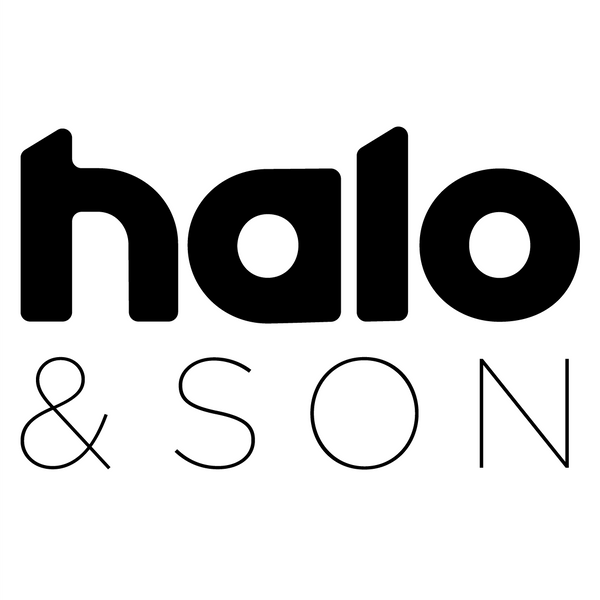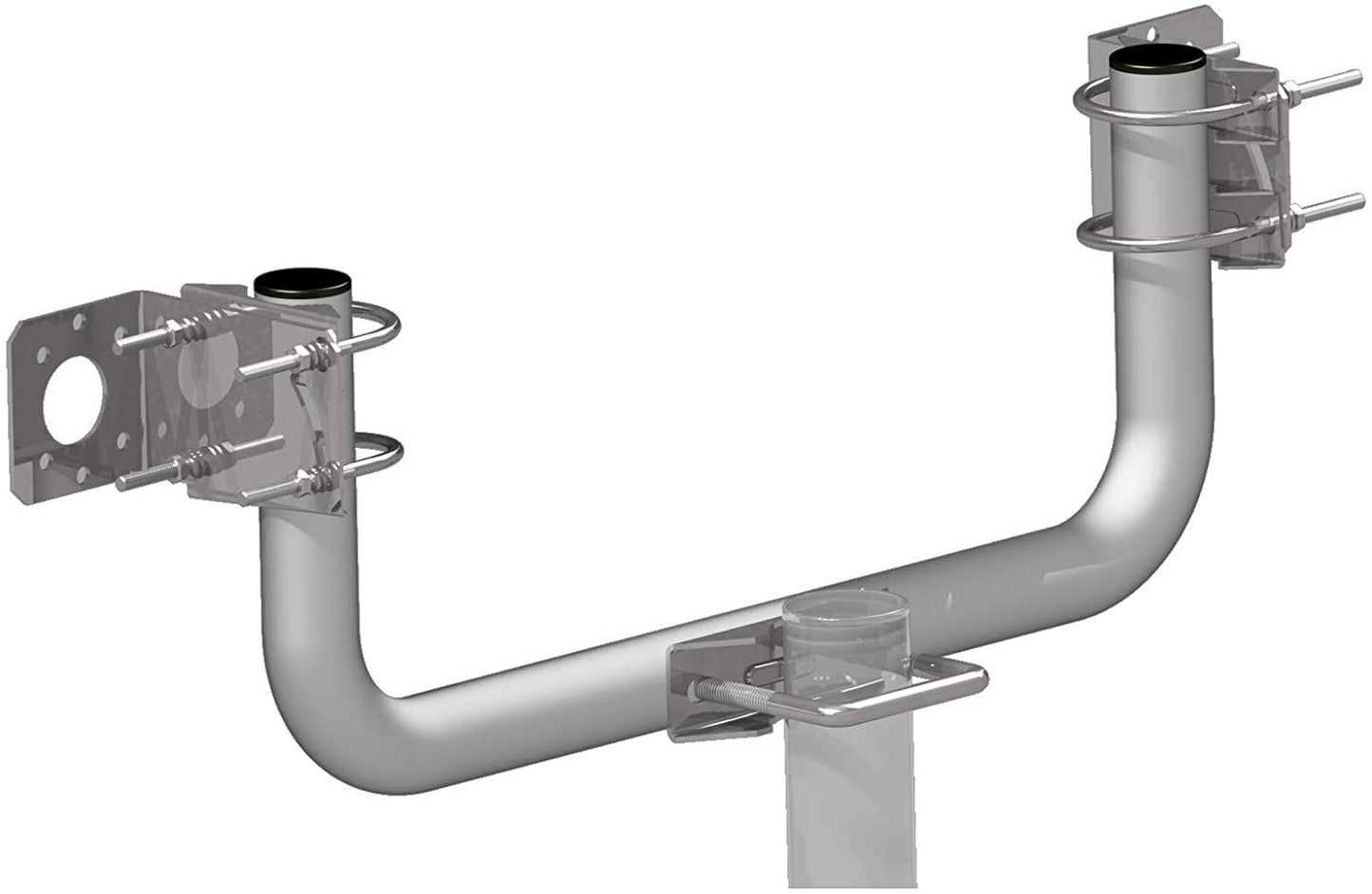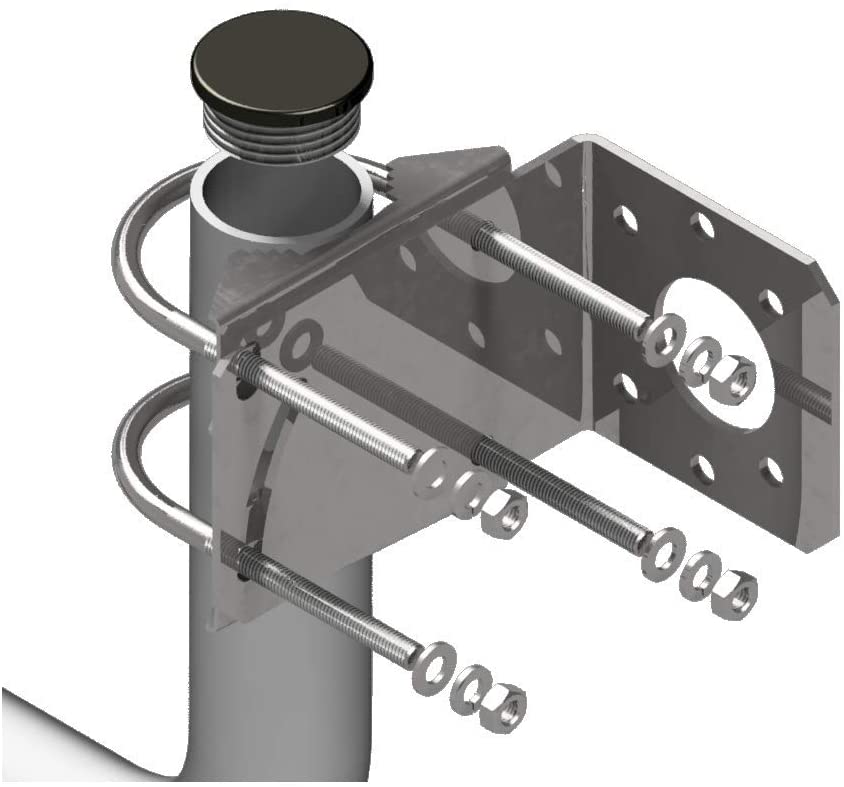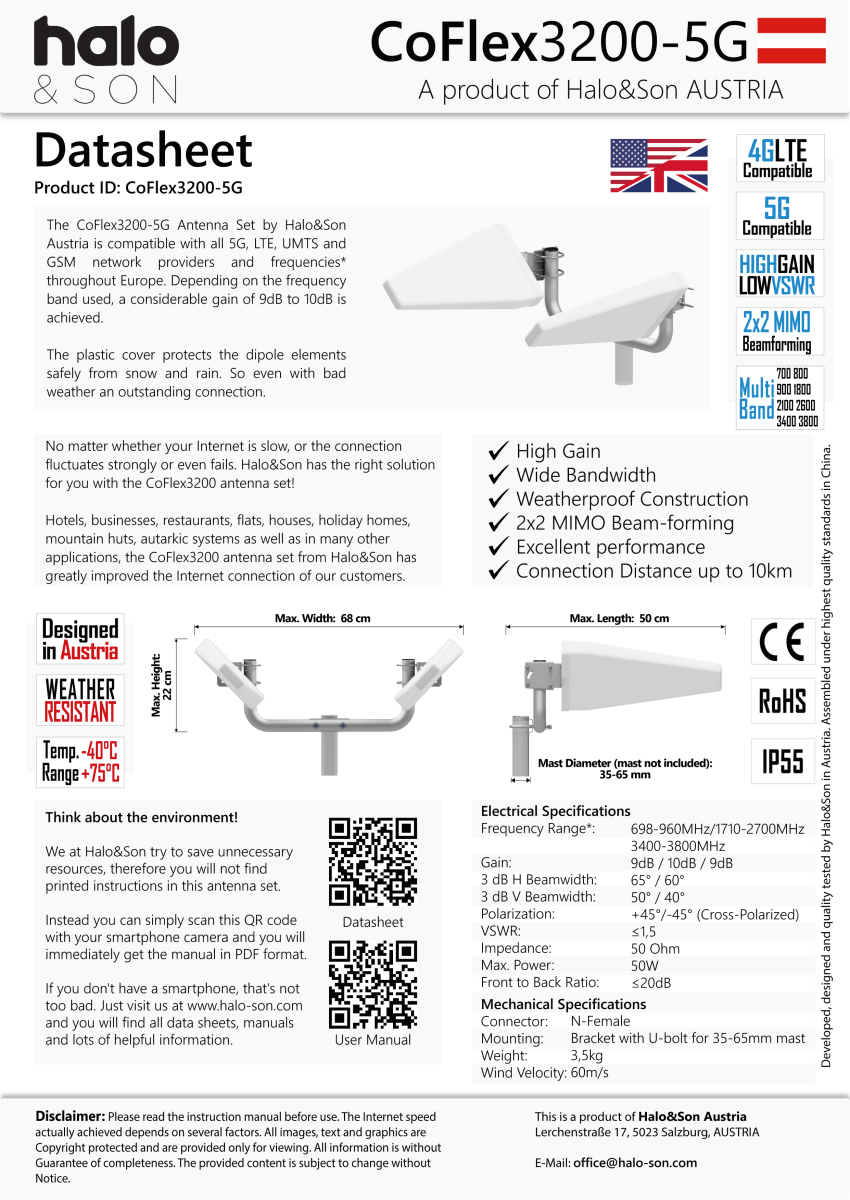In the world of mobile communications, frequencies are the foundation of connectivity. In the German-speaking region, the frequency bands from 3G to 4G and now to 5G have continuously evolved. Here's an overview of the frequencies used in Germany, Austria, and Switzerland and how they affect the performance of antennas like those from Halo&Son.
Germany: Mobile operators Deutsche Telekom, Vodafone, and O2 use frequency bands like 800 MHz, 1800 MHz, and 2600 MHz for 4G. For 5G, frequency ranges like 700 MHz, 3.5 GHz, and 26 GHz are relevant. The 26 GHz range is expected to be used for special applications such as local networks for industry.
Austria: Providers like A1, Magenta, and Drei use frequencies such as 700 MHz, 1500 MHz, 2100 MHz, 3.4 – 3.8 GHz for 5G. These frequency ranges are either direct neighboring frequency bands or already used for mobile communications.
Switzerland: Swiss providers Swisscom, Sunrise, and Salt use 5G frequencies in ranges like 700 MHz, 1400 MHz, and 3500 MHz. Additional frequencies in the 2600 MHz band as well as in the 700 and 1400 MHz ranges have also been offered.
Frequencies in Rural Areas: Interestingly, the same frequency bands are often used for 5G in rural areas as for 4G. This allows for more efficient use of existing infrastructures.
The Role of Halo&Son Antennas: Halo&Son’s antennas, such as the CoFlex3200 and CoFlex5200 models, are designed to be compatible with all these frequency bands. This makes them ideal for use in various European countries and regions, whether urban or rural.
Conclusion: The frequency bands of 3G, 4G, and 5G in the German-speaking region show an exciting development. With the right equipment, such as the antennas from Halo&Son, users can ensure that they benefit from this technological evolution and enjoy optimal connectivity.
Sources: Federal Network Agency (Germany), RTR (Austria), ComCom (Switzerland).






